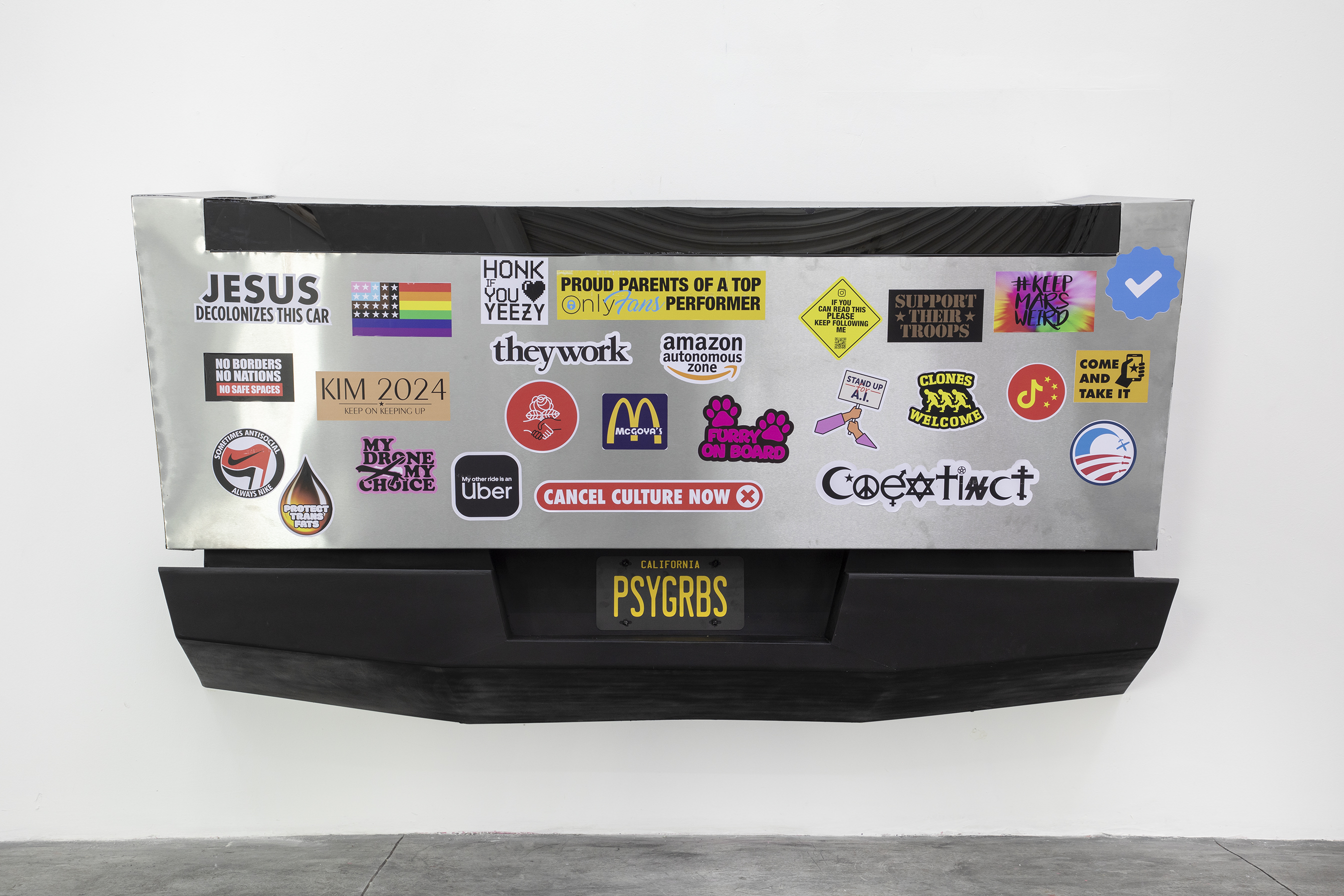
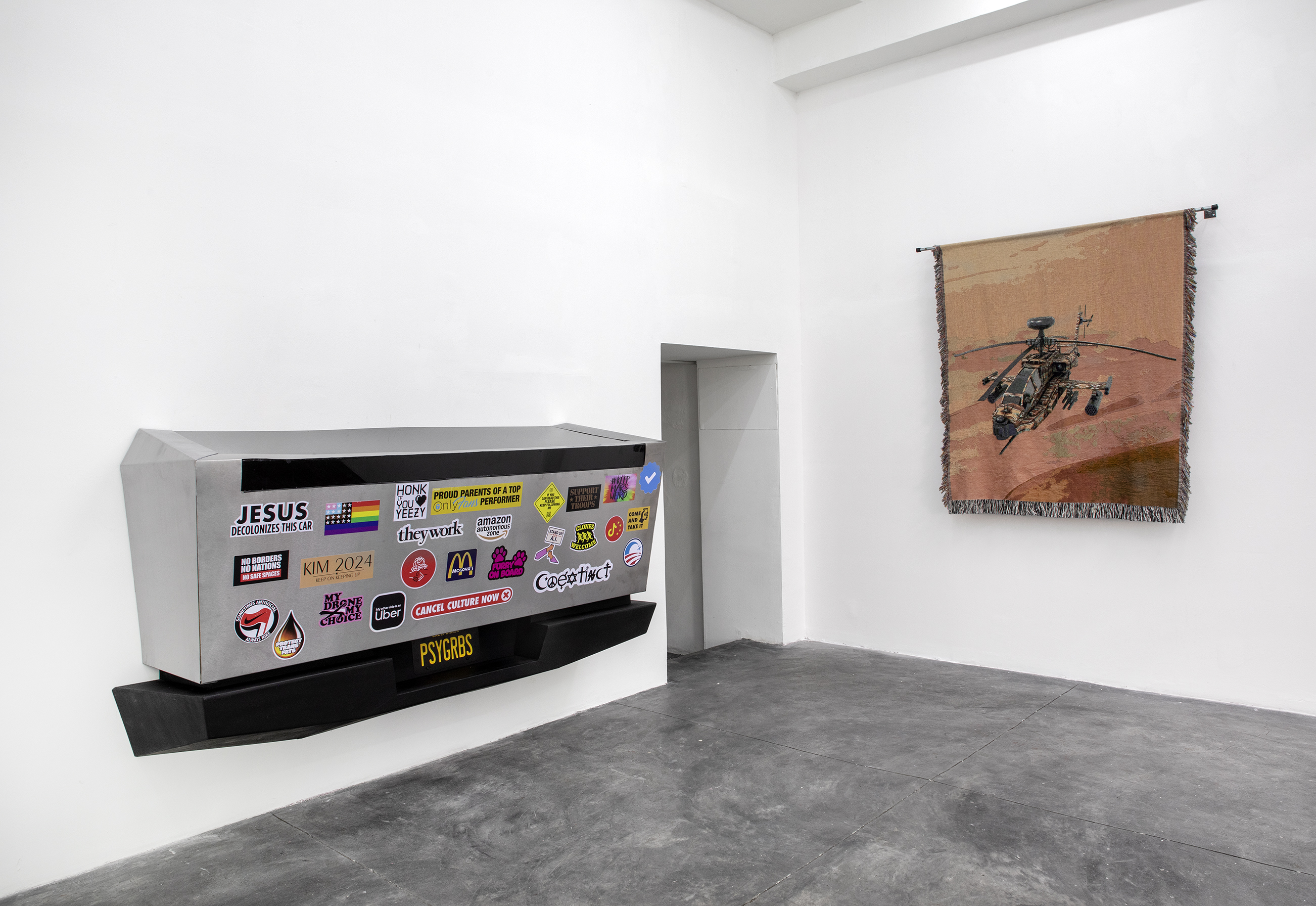

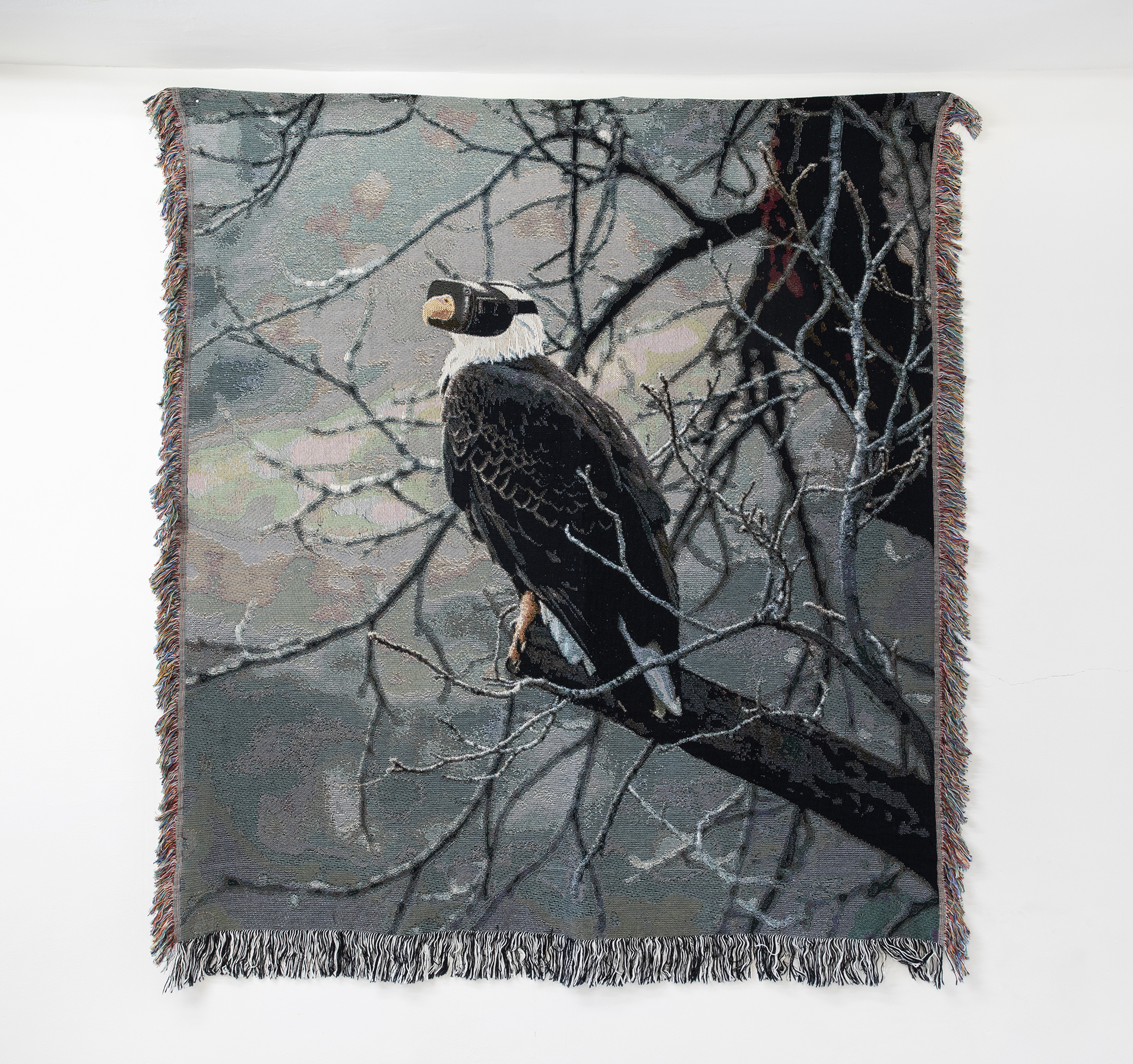
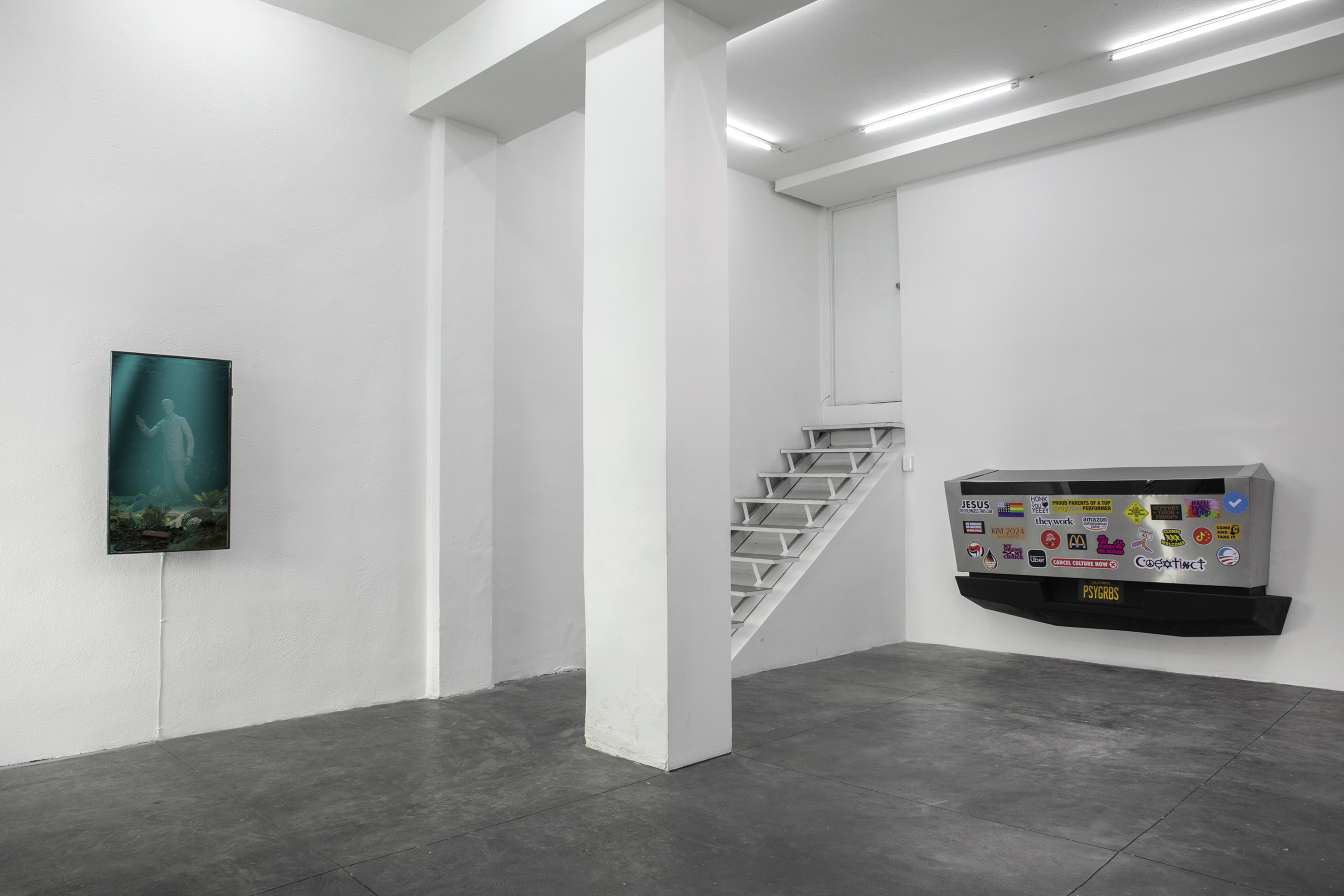
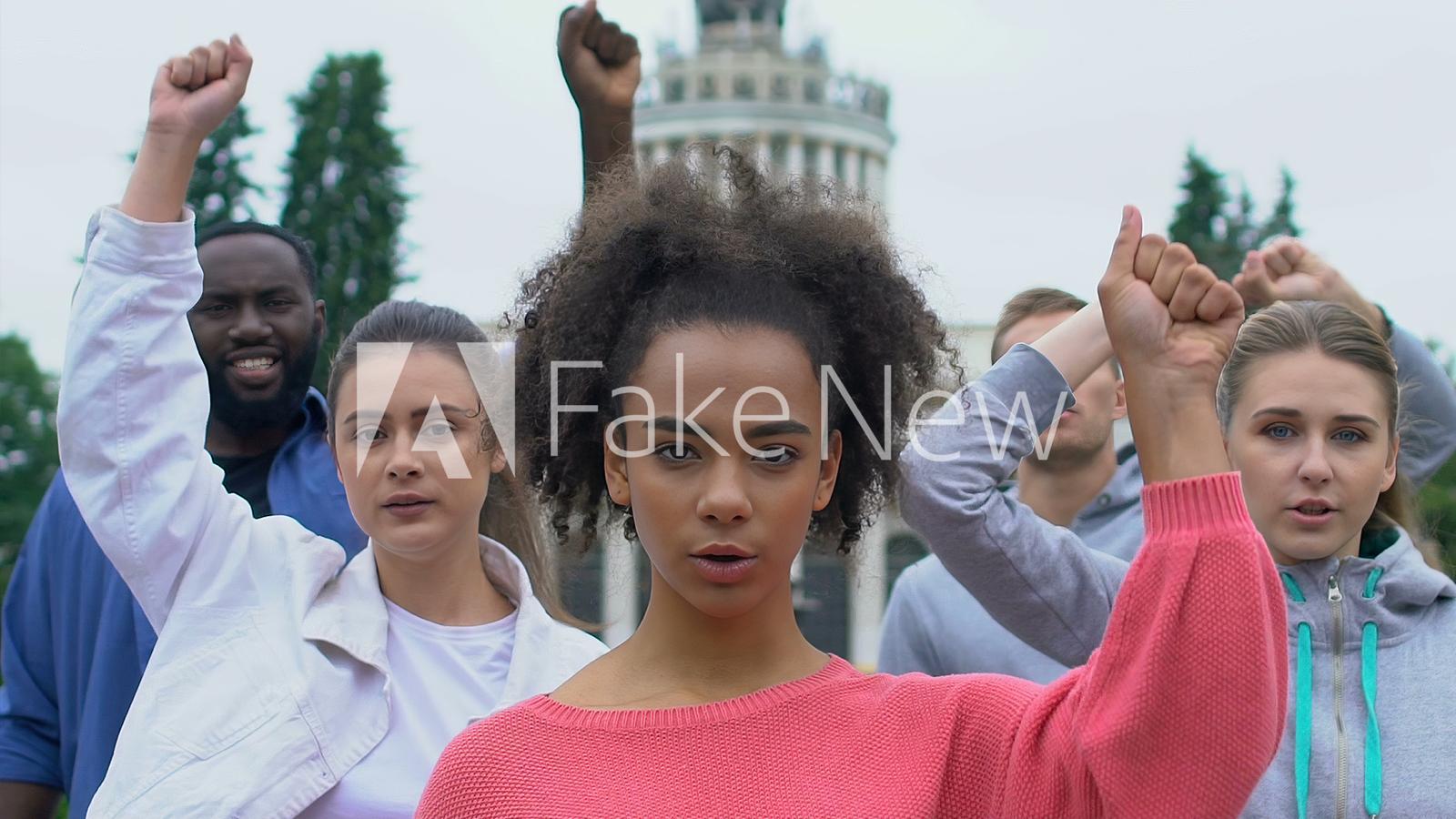


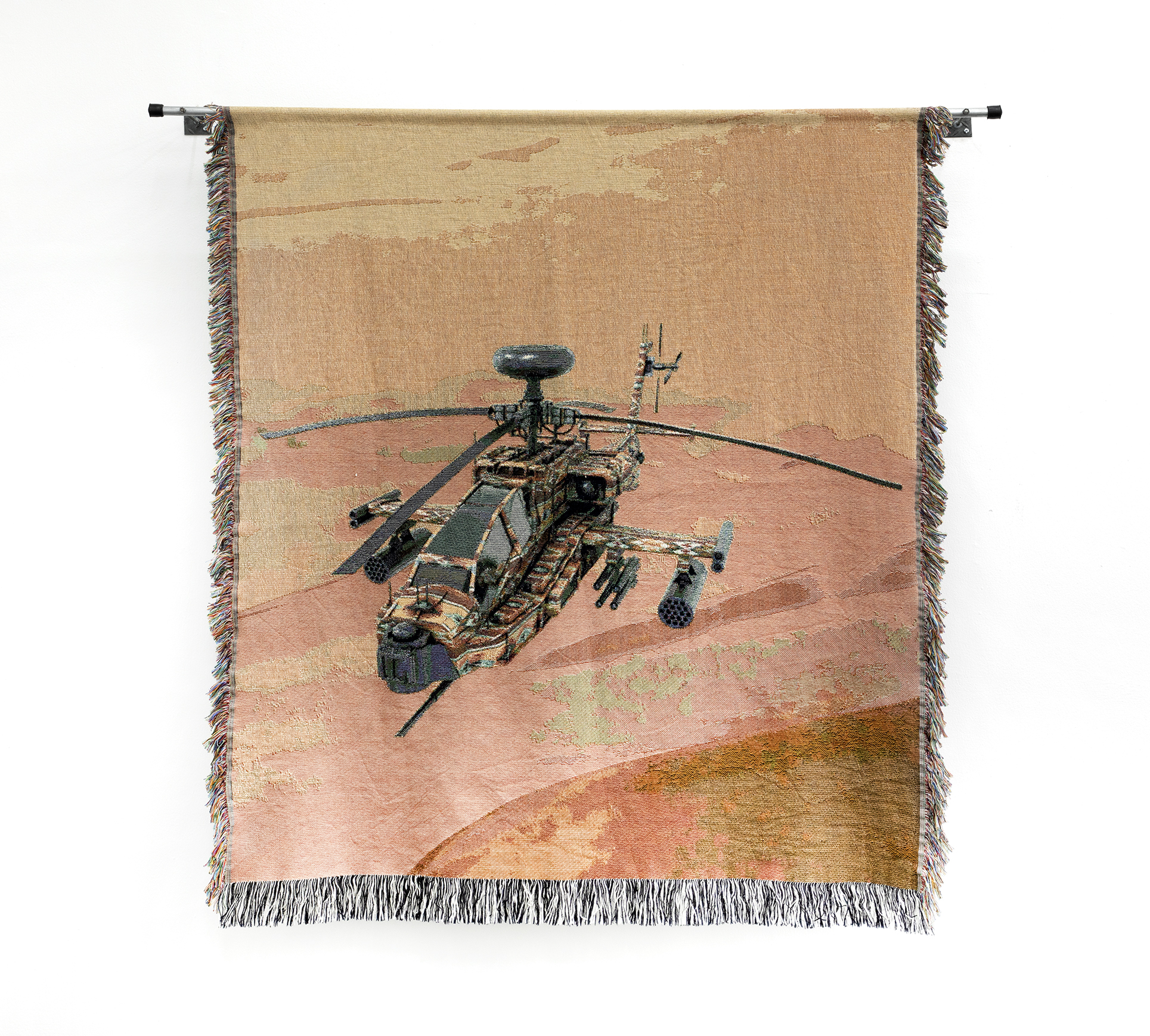
Fake New
JuanObando
JuanObando
Fake New is a series of works by Colombian artist Juan Obando that stems from his fascination with the reformulation of imperialism as a vulnerable, soft, and “emo” state, which, in turn, projects its most potent image towards our most intimate being.
In recent years, the most powerful institutions in the United States have directed their communication mechanisms toward a projection focused on assumptions of diversity, equity, and inclusion (DEI). Their social justice lexicon has been embedded in every global media format and has become the most prominent American export. This creates a curious dilemma in global south countries, where imperialism has traditionally been resisted from the left. In these circles —where the language that seems to give clues to decode power is deployed by the most efficient extractive and destructive power in the history of humanity— defeat is palpable. Their inability to enounce outside of the new codes not only highlights their failure but the very failure of language and the capacity for signification itself. It’s a crisis of faith in Faith. Of what we believe and of what we believe we believe.
But the image of imperial power is now renewed. Spectacularly, it stages the United States as a work in progress, invested in its self-improvement for the benefit of all. Decolonizing, dismantling, self-caring, and treating itself. Its new wounded eagle costume is its biggest asset. How to attack an animal whose pain is livestreaming worldwide at all times? Our new sensitivity does not allow such cruelty.
Today some bald eagles leave the planet after having raised it in their likeness, a statue of the correct president lies abandoned under the sea and turned into a stop for selfies, Apache helicopters culminate their transformation into agents of inclusion wearing native weavings, and the car of the future is stuck in an ideological cycle of slogans and absurd causes —as ridiculous as its own present.
In the end, we are the ones left. Almost like stock images, we find ourselves trapped behind the screen, posing in front of the omnipresent lens of life, repeating the silent slogans that the moment demands of us; stars of our own 10-second clip, modeling the world we won’t inherit.
Gabriel Mejía Abad
